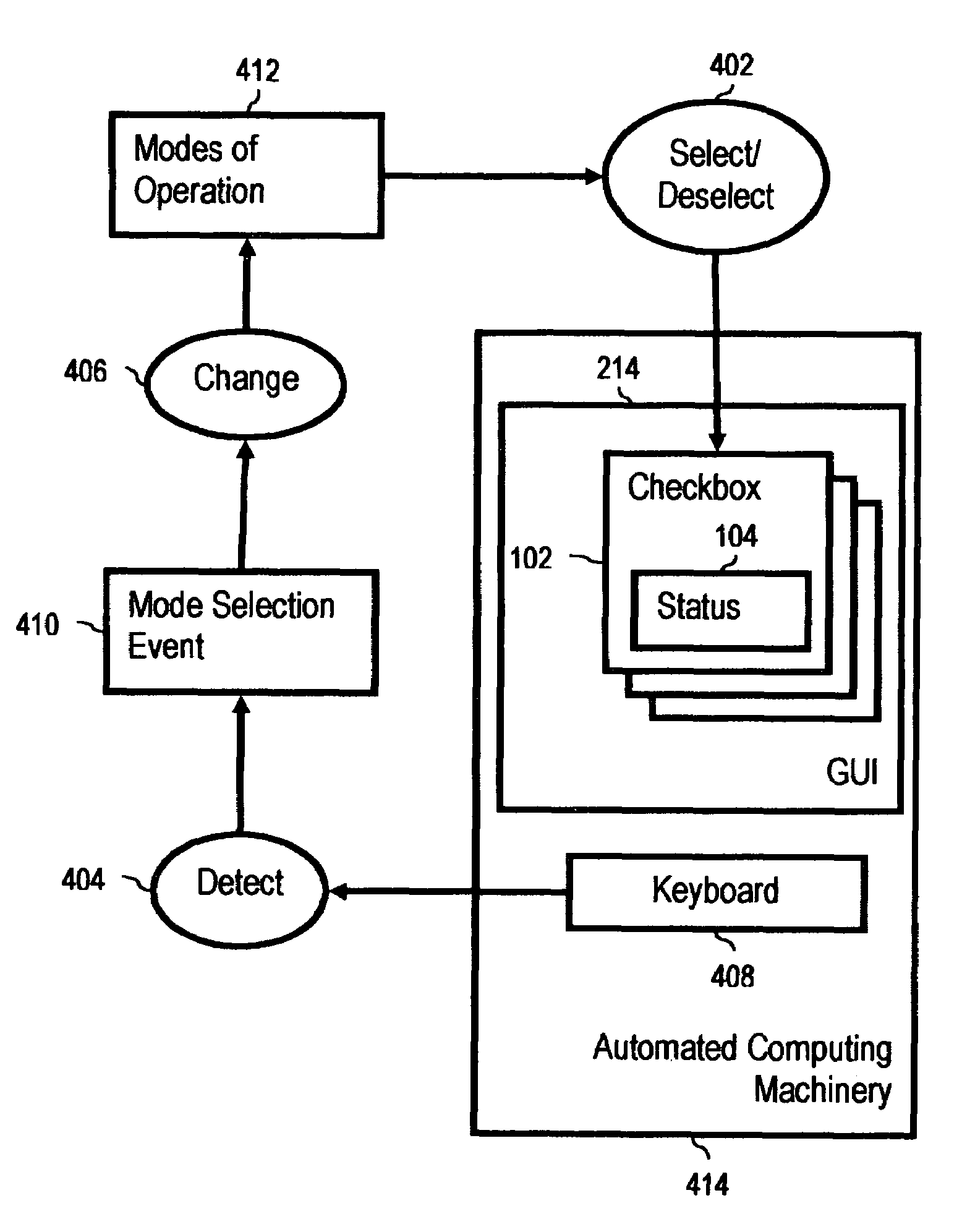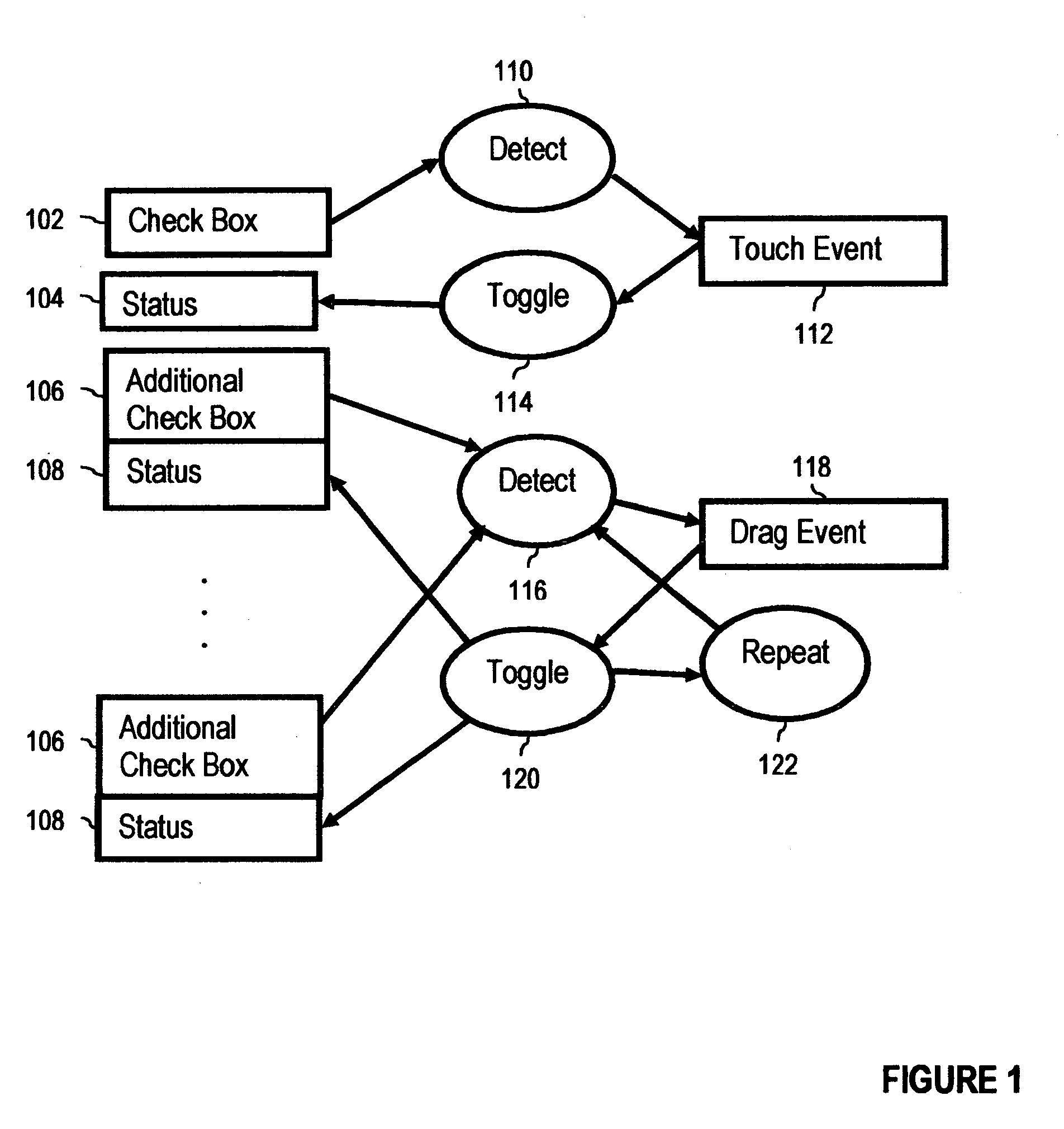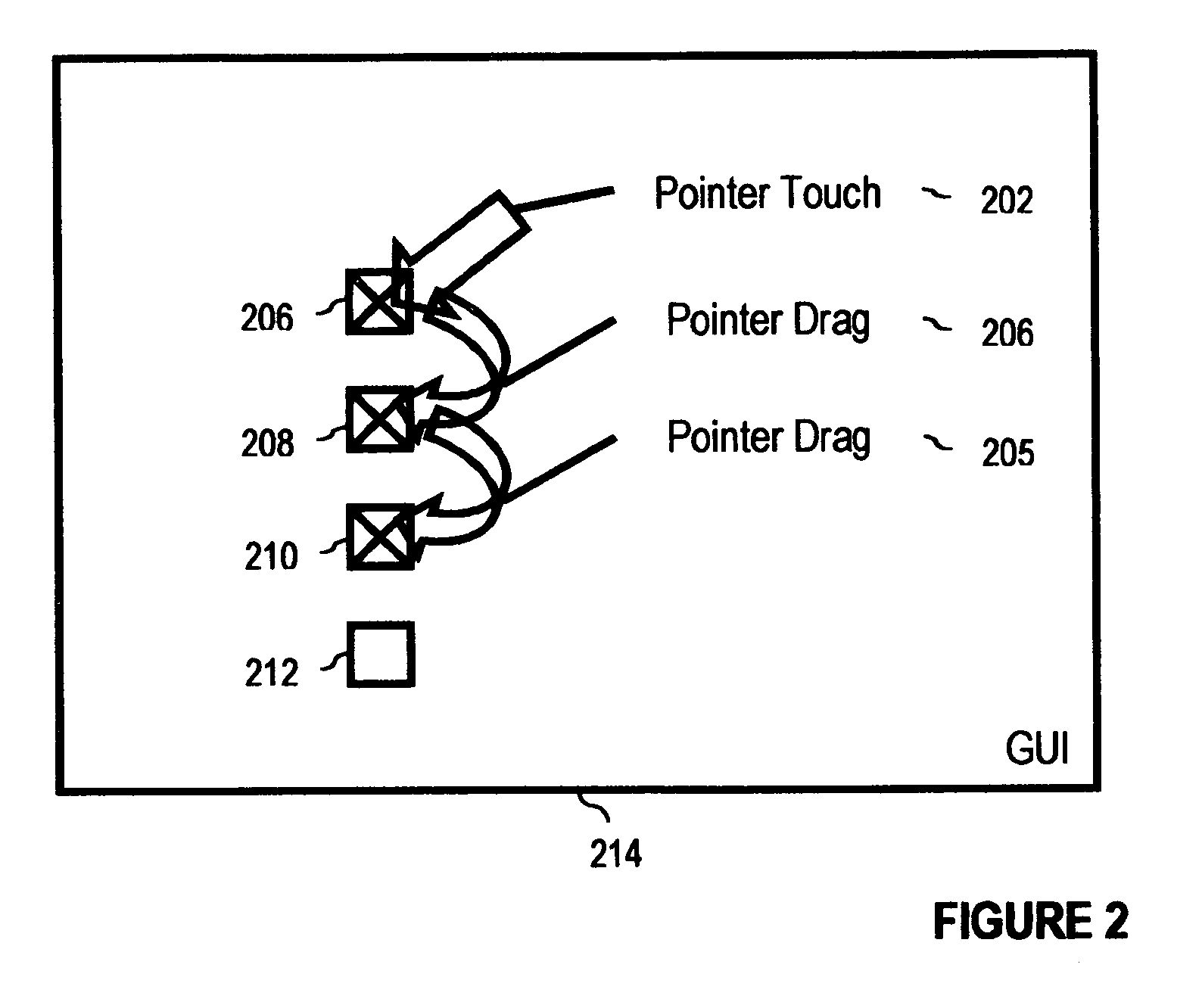Mode switching for ad hoc checkbox selection
a mode switching and checkbox technology, applied in the field of data processing, can solve the problems of each checkbox, selection is especially problematic, and the role of checkboxes in user interface design is problemati
- Summary
- Abstract
- Description
- Claims
- Application Information
AI Technical Summary
Benefits of technology
Problems solved by technology
Method used
Image
Examples
Embodiment Construction
Introduction
[0044]The present invention is described to a large extent in this specification in terms of methods for ad hoc checkbox selection in graphical user interfaces, particularly non-persistent, stateful ad hoc checkbox selection. Persons skilled in the art, however, will recognize that any computer system that includes suitable programming means for operating in accordance with the disclosed methods also falls well within the scope of the present invention.
[0045]Suitable programming means include any means for directing a computer system to execute the steps of the method of the invention, including for example, systems comprised of processing units and arithmetic-logic circuits coupled to computer memory, which systems have the capability of storing in computer memory, which computer memory includes electronic circuits configured to store data and program instructions, programmed steps of the method of the invention for execution by a processing unit. The invention also may...
PUM
 Login to View More
Login to View More Abstract
Description
Claims
Application Information
 Login to View More
Login to View More - R&D
- Intellectual Property
- Life Sciences
- Materials
- Tech Scout
- Unparalleled Data Quality
- Higher Quality Content
- 60% Fewer Hallucinations
Browse by: Latest US Patents, China's latest patents, Technical Efficacy Thesaurus, Application Domain, Technology Topic, Popular Technical Reports.
© 2025 PatSnap. All rights reserved.Legal|Privacy policy|Modern Slavery Act Transparency Statement|Sitemap|About US| Contact US: help@patsnap.com



